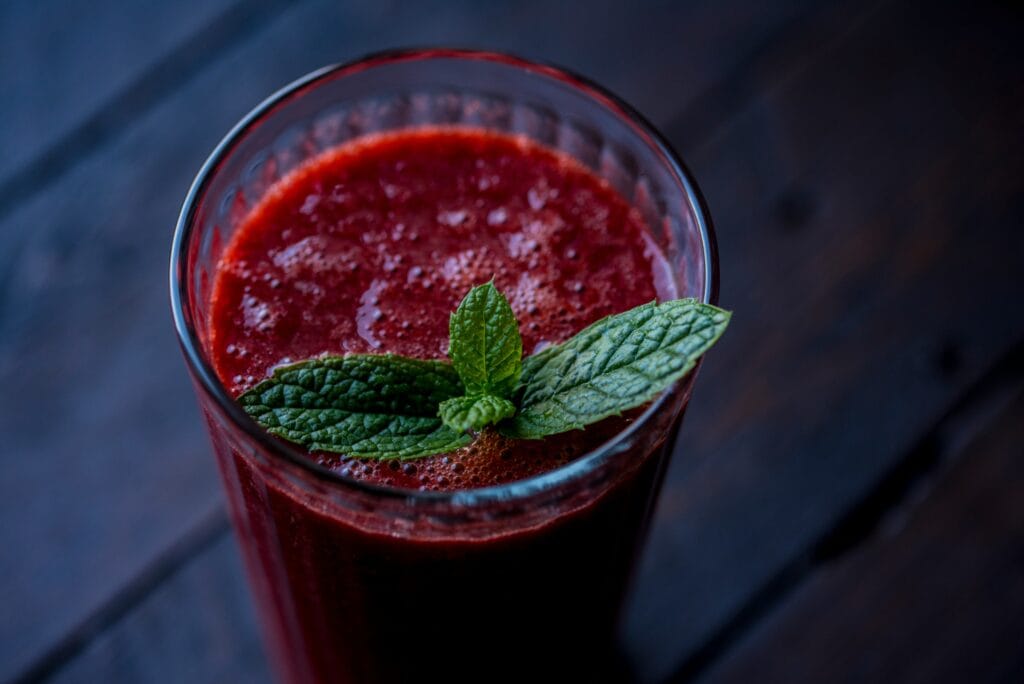
Why Protein Is Essential After Bariatric Surgery
After undergoing bariatric surgery, proper nutrition becomes essential for recovery and long-term success. Protein plays a critical role in healing, maintaining muscle mass, and promoting overall health. However, meeting your protein needs can be challenging, especially during the early stages of your post-surgery journey. This is where protein powders come in handy. In this comprehensive guide, we’ll explore the best bariatric protein powders available, their key features, and how to incorporate them into your diet effectively.
The Importance of Protein After Bariatric Surgery
Bariatric surgery significantly reduces the size of your stomach, which can limit your food intake. As a result, prioritizing protein consumption is crucial to ensure adequate nutrition and facilitate recovery. Here are some key reasons why protein is vital post-surgery:
1. Muscle Repair and Growth
Following surgery, your body requires protein to repair tissues and build new muscle. Adequate protein intake helps to minimize muscle loss during the recovery process. Protein provides the amino acids necessary for muscle synthesis, which is essential for regaining strength and function.
2. Weight Management
Protein has a higher thermic effect compared to fats and carbohydrates, meaning your body burns more calories digesting it. Including protein-rich foods and supplements in your diet can help manage weight loss and support your metabolic rate.
3. Satiety and Appetite Control
High-protein meals promote feelings of fullness, which can help curb hunger and prevent overeating. This is particularly important after bariatric surgery, where portion sizes are smaller, and managing cravings becomes crucial.
4. Immune Support
Protein is essential for the production of antibodies and immune cells. After surgery, your immune system needs support to prevent infections and promote healing.
5. Wound Healing
Sufficient protein intake aids in wound healing, as it helps form collagen, a key component in repairing tissues. Adequate protein levels can accelerate recovery time and improve surgical outcomes.
Key Considerations When Choosing Protein Powders
When selecting a protein powder, consider the following factors:
- Protein Source: Common protein sources include whey, casein, soy, and pea. Whey protein is popular due to its high bioavailability and quick absorption, but those with lactose intolerance may prefer plant-based options.
- Amino Acid Profile: Look for protein powders that contain all essential amino acids, particularly branched-chain amino acids (BCAAs), which are crucial for muscle recovery.
- Added Nutrients: Some protein powders come fortified with vitamins and minerals, which can be beneficial for post-surgery recovery.
- Taste and Texture: Since you’ll be consuming these powders regularly, choose flavors and textures you enjoy.
- Dietary Restrictions: Check for allergens and dietary restrictions, such as gluten-free, dairy-free, or vegan options, to ensure they fit your needs.
The Role of Protein Types
Understanding the different types of protein powders available can help you make informed choices based on your dietary needs:
- Whey Protein: Derived from milk, whey protein is quickly absorbed and rich in essential amino acids. It is often recommended for post-workout recovery due to its fast digestion.
- Casein Protein: Also derived from milk, casein is absorbed more slowly, providing a steady release of amino acids. This makes it ideal for nighttime use or for those looking to stay full longer.
- Soy Protein: A plant-based option, soy protein is an excellent source of protein for vegetarians and vegans. It contains all essential amino acids and is beneficial for heart health.
- Pea Protein: Derived from yellow peas, pea protein is another plant-based option that is hypoallergenic and easily digestible. It is often used in combination with other protein sources to create a complete amino acid profile.
- Hemp Protein: Made from hemp seeds, this protein powder is rich in omega-3 fatty acids and fiber. It’s suitable for those looking for a nutrient-dense, plant-based option.
- Collagen Protein: While not a complete protein source, collagen is beneficial for skin, hair, nails, and joint health. It can be a great addition to a protein-rich diet, especially post-surgery.
Top Recommended Bariatric Protein Powders
Here are our top picks for the best bariatric protein powders, each designed with the needs of bariatric patients in mind.
| Protein Powder | Key Features | Correlation to Benefits |
|---|---|---|
| Unjury Protein Powder (Chocolate & Vanilla) | 20g protein per serving, low in carbs, gluten-free. Contains all essential amino acids. | Supports muscle repair and overall recovery while being easy on the stomach. |
| Bariatric Advantage Protein Powder (Vanilla) | 15g protein per serving, rich in vitamins and minerals. Smooth texture that mixes well in beverages and foods. | Provides added nutrients essential for recovery and maintains muscle mass. |
| Vital Proteins Collagen Peptides (Unflavored) | 20g protein per serving, supports skin and joint health, can be added to both sweet and savory dishes. | Enhances skin elasticity and joint health, important during weight loss. |
| Isopure Zero Carb Protein Powder (Chocolate) | 25g protein per serving, zero carbs and sugars. Perfect for those looking to limit their carbohydrate intake. | Aids in weight management while providing a high protein content. |
| Orgain Organic Protein Powder (Vanilla) | 21g protein per serving, plant-based, organic ingredients, free from artificial flavors and preservatives. | Offers a clean protein source that aligns with a healthy lifestyle post-surgery. |
| ProMix Nutrition Protein Powder (Vanilla Bean) | 20g protein per serving, non-GMO, organic, and made from pea protein. | A clean, plant-based option that provides sustained energy without artificial additives. |
| Garden of Life Organic Protein Powder (Chocolate) | 20g protein per serving, vegan, gluten-free, and includes a blend of various plant proteins. | Provides a complete amino acid profile for muscle recovery and overall health. |
| Dymatize ISO100 Hydrolyzed Protein Powder (Vanilla) | 25g protein per serving, hydrolyzed for faster absorption, gluten-free. | Excellent for rapid recovery post-exercise and minimizes muscle breakdown. |
| Tera’s Whey Organic Whey Protein Powder (Vanilla) | 21g protein per serving, sourced from grass-fed cows, organic ingredients. | Supports high-quality protein intake while being mindful of sourcing and health. |
How to Use Protein Powders
Incorporating protein powder into your diet is simple. Here are some practical tips:
- Smoothies: Blend protein powder with fruits, vegetables, and healthy fats for a nutrient-rich smoothie. Try our Chocolate Banana Protein Smoothie for a delicious start to your day (below).
- Baking: Add protein powder to your baking recipes for muffins, pancakes, or protein bars. Check out our Berry Protein Pancakes recipe for a tasty breakfast option (below).
- Soups and Sauces: Stir protein powder into soups or sauces to enhance their nutritional value. Our Creamy Protein Soup is a comforting choice (below)!
- Post-Workout Recovery: Use protein powder as a post-workout supplement to aid muscle recovery. Consuming protein shortly after exercising can help rebuild muscle tissue and support overall recovery.
- Puddings and Desserts: Protein powder can be used to make healthy puddings or dessert options, providing a sweet treat while boosting your protein intake.
Additional Tips for Incorporating Protein Powders
- Experiment with Flavors: Try different flavors of protein powder to keep your meals interesting. You can also mix flavors for unique combinations.
- Stay Hydrated: Ensure you are drinking enough fluids, especially when increasing your protein intake. Hydration is key for digestion and overall health.
- Monitor Portion Sizes: While protein is essential, it’s still important to manage portion sizes to avoid discomfort or digestive issues. Start with small amounts and gradually increase as tolerated.
- Combine with Whole Foods: Use protein powders as a supplement to a balanced diet. Pair them with whole foods like fruits, vegetables, whole grains, and healthy fats to create well-rounded meals.
Potential Drawbacks of Protein Powders
While protein powders are beneficial, it’s important to be aware of potential downsides:
- Digestive Issues: Some individuals may experience bloating, gas, or discomfort from certain protein powders. Start with small amounts to assess tolerance.
- Not a Complete Solution: Relying solely on protein powders can lead to nutrient imbalances. Always aim to consume a well-rounded diet rich in whole foods.
- Allergens: Be cautious of allergens, such as dairy or soy, which may be present in certain protein powders.
Recipes Using Bariatric Protein Powders
To help you get started, here are some easy and delicious recipes using the recommended protein powders:
1. Chocolate Banana Protein Smoothie
Ingredients:
- 1 scoop Unjury Protein Powder (Chocolate flavor)
- 1 ripe banana
- 1 cup unsweetened almond milk (or milk of choice)
- 1 tablespoon natural peanut butter (optional)
- Ice cubes (optional)
Instructions:
- Combine all ingredients in a blender.
- Blend until smooth and creamy.
- Enjoy immediately!
2. Berry Protein Pancakes
Ingredients:
- 1 scoop Bariatric Advantage Protein Powder (Vanilla flavor)
- 1 cup rolled oats
- 1 cup almond milk (or milk of choice)
- 1/2 cup mixed berries (fresh or frozen)
- 1 egg
- 1 teaspoon baking powder
- A pinch of salt
Instructions:
- In a mixing bowl, combine all ingredients and mix until well blended.
- Heat a non-stick skillet over medium heat.
- Pour a small amount of batter onto the skillet for each pancake.
- Cook until bubbles form on the surface, then flip and cook until golden brown.
- Serve warm with a drizzle of honey or syrup.
3. Creamy Protein Soup
Ingredients:
- 1 scoop Vital Proteins Collagen Peptides (Unflavored)
- 2 cups low-sodium vegetable broth
- 1 cup diced vegetables (carrots, celery, zucchini)
- 1/2 cup cooked chicken or tofu (optional)
- Salt and pepper to taste
- Herbs of choice (e.g., thyme, rosemary)
Instructions:
- In a pot, bring the vegetable broth to a boil.
- Add diced vegetables and cook until tender.
- Stir in the protein powder and optional chicken or tofu.
- Season with salt, pepper, and herbs.
- Serve hot.
Final Thoughts
Choosing the right protein powder after bariatric surgery is crucial for your recovery and long-term health. With so many options available, it’s important to select a product that meets your nutritional needs while fitting your taste preferences. Remember, protein powders should complement a balanced diet rich in whole foods.
By making informed choices and incorporating protein powders into your diet, you can support your recovery, maintain your health, and achieve your weight loss goals post-surgery.


